The Optimal Diet
Is there an optimal diet? Maybe not, or at least - contrary to what is commonly proposed in many gyms and weight loss centers - there is no standardized, pre-printed and one-size-fits-all diet.
There are, however, optimal diets, which take into account individual needs, sex, age and the type of physical activity practiced.
We can consider the FAO tables as useful indications, but not as absolute truths, because they are drawn up on the average of the population and do not take into account the specific individual needs.So, if we have particular needs, as in the case of those who exercise and in particular bodybuilding, certainly an "improvised diet is not enough to achieve good results!"
Proper nutrition must therefore be balanced, with the right component of proteins, carbohydrates and fats; in general, however, when setting up a diet we will always have to calculate the daily energy requirement and expenditure, taking into account the following:
- the calculation of energy expenditure is absolutely indicative, therefore try several times until you find the optimal caloric quota;
- calorie expenditure is conditioned by many environmental and genetic factors, among which I remember, above all, the action of certain hormones, such as thyroid, testosterone and gh, whose levels vary continuously in the organism;
- the factor of 2% per decade, to be applied to the diet to consider the decrease in basal metabolism with aging (a parameter, this, always indicative, since a 40-year-old bodybuilder will have a higher metabolism than a sedentary thirty-year-old).
Let's summarize, to set up a correct diet, the concepts mentioned above:
- eat several small meals a day balanced with the various macronutrients. It is scientifically proven that 5 meals create the optimal conditions for protein synthesis.
- consume complex carbohydrates and perhaps use rapid sugars in situations of hypoglycemia (after training or in the morning on an empty stomach).
- keep the consumption of fats low by giving priority to unsaturated ones.
- consume proteins of high biological value
- if there are hypercholesterolemia problems, avoid excessive consumption of eggs, perhaps using only egg whites and some supplements, such as fish oil (omega-3) or soy.
- always cook the eggs, because the egg white contains "avidin" a destroyer of vitamin B8 which is inactivated by cooking.
- eliminate alcohol or limit its intake
- ensure that vitamins, minerals are present in the diet and consume an adequate amount of fresh fruit and vegetables.
- keep your body hydrated and drink during workouts.
- do regular blood tests, at least twice a year, as its composition is like a "photograph" of the body's state of health. Obviously, consult the tests with your doctor.
Indispensable tools
To set up a meal plan in the best possible way we cannot do without the following tools:
- kitchen scales for food
- table with the composition of foods
- scale
- skinfolder
It is advisable to always weigh yourself on the same scale and at the same time, preferably in the morning on an empty stomach, as during the day the weight can undergo considerable changes (in relation to the body's water levels). Remember that it is always better to evaluate fat mass, in order to plan a scientific work and check the body composition over time, with expiration every 4-6 weeks and relying on the same operator.
Are all calories the same?
According to what was said previously, based on the calorie balance, if we eat too much we gain weight, while if we eat little we lose weight. In reality it is not that simple and it is legitimate to ask: "Are all calories the same?".
Most old school doctors or dieticians will tell you yes and add that a calorie cut for weight loss is enough; in recent years, however, we have learned that foods don't always behave the same way and that depends on how they are combined:
- calories from fat make you fat faster as excess is stored more quickly and with less waste for digestion and metabolism;
- the calories of alcohol, being empty, are easily transformed into fat.
- any excess is transformed into fat, but proteins require a greater expenditure of energy and their "surplus" raises the metabolism;
- a meal of only proteins or complex carbohydrates and fibers makes you fat less than a normal mixed meal, due to insulin secretion; for the same reason meals with "quick" sugars, "fats" and "alcohol" are the safest way to obesity and health problems;
- the same caloric quantity gains less weight if divided into 4-5 small meals a day;
- the same food can cause a lipid increase or not depending on the time of day in which it is taken.
Practical Examples
Many people feed like this:
- breakfast: coffee with 2-3 teaspoons of sugar
- lunch: pasta, bread, meat, salad, oil or butter, fruit, coffee with sugar
- dinner: pasta, bread, fish, dessert
Calorically, this diet might be fine, but the breakdown of the various foods is somewhat wrong (keep in mind that most people embrace similar eating habits). In the morning classic coffee at the bar, perhaps with dessert, no snack, quick lunch and in the evening finally the big binge, and then sit in an armchair in front of the television: horrible scenario !!! Because???
- the foods are concentrated in only 2 intakes, with excess calories and protein at meals.
- there is no "first" breakfast and there is an excessive amount of time between meals, this leads to the catabolism of protein structures, especially in the morning.
- simultaneous presence of fast and complex carbohydrates, fats, proteins, with consequent significant insulin release and increase in lipid deposits.
- high intake of carbohydrates in the evening, therefore inhibition of the release of GH at night.
- low protein intake to the muscles, since the proteins are concentrated in only 2 meals, the organism is able to synthesize only a part and the rest will be transformed into fat!
EXAMPLE OF "MODIFICATION":
- breakfast: 1 glass of milk, 3-4 rusks or biscuits, coffee with fructose.
- snack: 1 yogurt, 1 fruit
- lunch: medium portion of pasta (80-100 g), grilled meat, salad with raw oil, 1 small sandwich.
- snack: 1 yogurt, 1 fruit
- dinner: grilled fish or chicken, plenty of vegetables with raw oil, 1 sandwich
In this case we kept almost the same caloric intake, but divided the foods differently throughout the day. Don't imagine how many people lose weight just by reducing carbohydrates in the evening meal.
Does it still make sense to talk about Calories?
Let's summarize what we have said so far:
- the increase and decrease in weight depend on highly individual factors, up to the excess in which, for the same sex, body weight and physical activity, with the same dietary ration, one individual gains weight and the other loses weight.
- the aforementioned factors depend on "basal metabolism and hormone production"; they therefore change from one individual to another during the various stages of growth and life.
- we can have middle-aged people with a MB higher than a sedentary 20-year-old
- the MB is "modifiable": it tends to slow down with age, the lack of movement, with diets that are too strict or too rich in simple carbohydrates and, vice versa, it speeds up with physical activity, with diets divided into several daily snacks and with the high-protein ones.
- the increase in fat is influenced by the production of insulin, therefore by the glycemic index of the food and the composition of the meals.
- the same daily dietary ration causes different responses in the organism, simply by shifting the times of food intake.
The fundamental thing is to reduce the concept of "calorie", so do not attribute an absolute value to it, as in the case of the traditional scale which does not tell us if we are fat or thin.
It is therefore essential to try to get to know ourselves or our students better in order to be able to operate at their best.

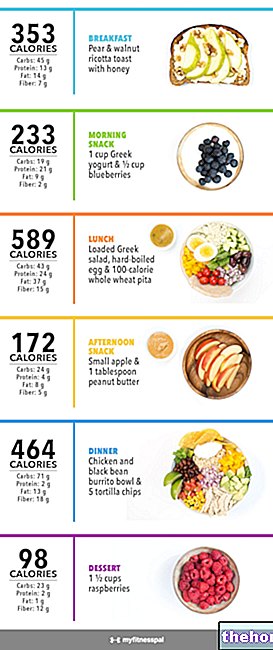

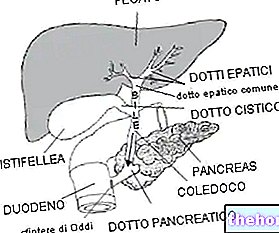
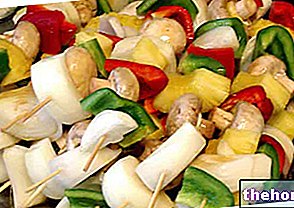
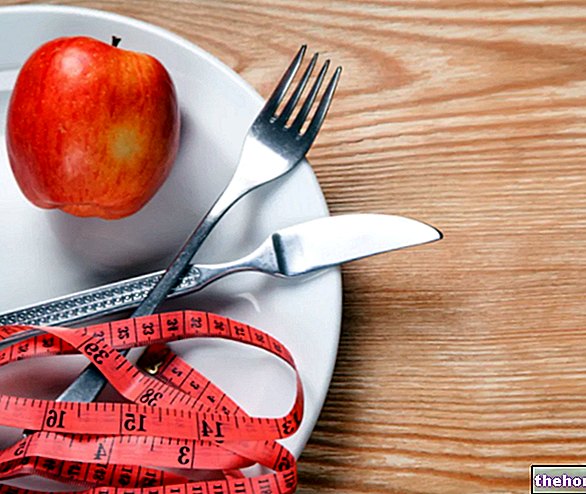
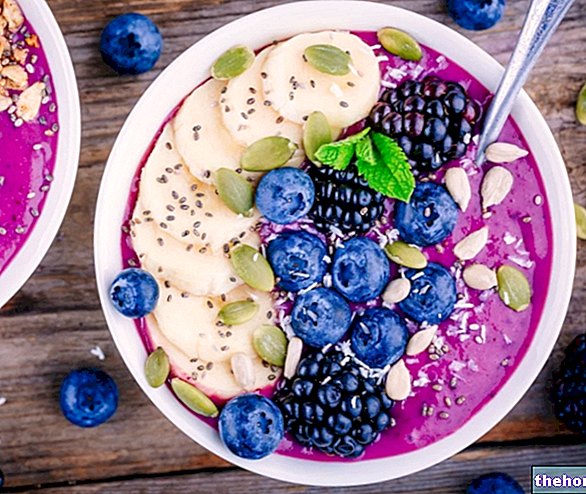
















-nelle-carni-di-maiale.jpg)




